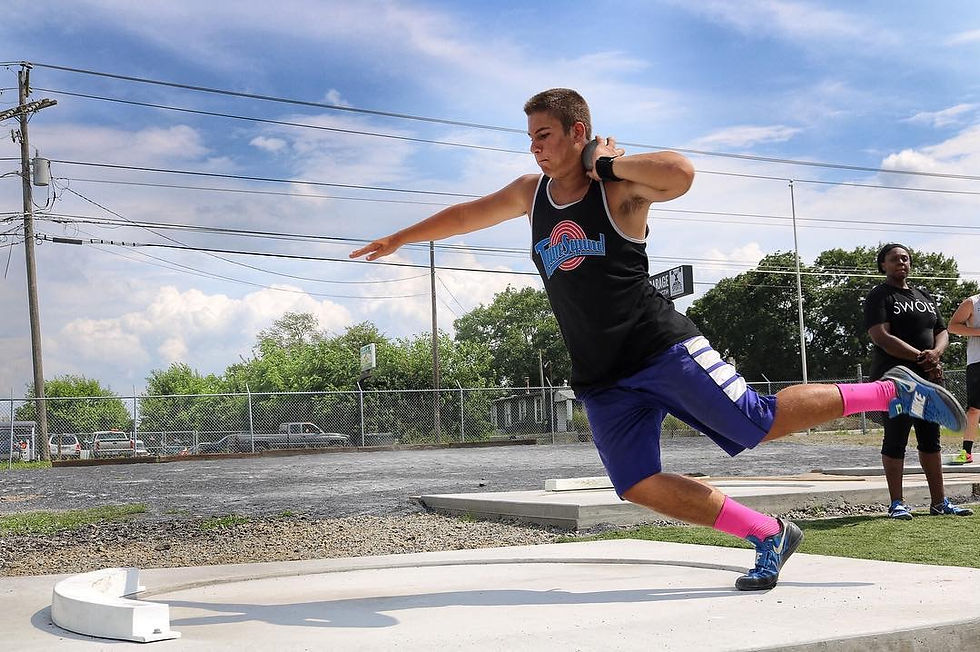4 Things You'll (Probably) Need to Sacrifice as a Post-Collegiate Athlete
- Throws University

- Aug 30, 2018
- 3 min read
This list wasn't meant to be all-inclusive, or in any way intimidating. Rather, I hope to educate some people on aspects of post-collegiate life they mat not know about, and help people make informed decisions. So, without further ado, here's the list:
1. Money
This one doesn’t necessarily apply to people pursuing football, basketball, or baseball post-collegiately. But if you are, let me know, I’d love to talk. For those of us in small (or no) money sports, committing to serious post-collegiate training can mean sacrificing some earning potential. Hopefully, you’re good enough to get some sort of stipend or financial support from your national governing body. Even if this is the case, you won’t necessarily be living pretty. If you’re not, the situation could be more difficult. You’ll likely need to find out how to balance training with working part- or full-time. And as the nation’s student debt bubble continues to expand, it’s more and more likely that you’re also contending with loans from trying to get an education in the first place. This can make the financial stress all more real. Ideally, you’ll be able to find an employer who is understanding about your packed schedule, as well as the fact that you may have to take time away to compete during certain parts of the year. Be upfront and try to find a place that will work for you.
2. Living Situation
This is another one that may have to go by the wayside, at least somewhat. You may have always dreamed of living in New York or Los Angeles, but if the best training situation for you is in Wichita, Kansas, you’re going to have to do some serious thinking. The window for high performance athletics is not very large, meaning you have to capitalize every day that you have. You might have to sacrifice your ideal living situation for one that will be ideal for your training. If you have a coach, I would highly recommend doing your best to be as near them as possible, at least for the first 12-18 months. This will help both of you understand the other better, and if you want/have to move away, at least you have that basis of understanding to continue working together in the future.
3. Socializing
Pretty much every elite athlete already knows this one, and they’re probably already pretty good about it if they’ve gotten to this level. However, if you aren’t--or even if you are--this is a different game now. If you felt like, in college, you could get away with partying all the time in your offseason, you may want to rethink that now. The people you are competing against now are professionals. Meaning, they take this seriously. You have to be willing to sacrifice just as much, if not more, than your competitors if you want to have a chance. Another change from the collegiate life is that there probably won’t be a head coach there to pull you into their office and yell at you for getting caught out drunk at 4am two nights before your conference meet! You’ll have to be the one to tell yourself, “hey, I don’t think this is such a great idea anymore”. That responsibility means you’ll have to be proactive, especially if you know you like to party, and plan out your “cheat days” ahead of time so they can happen in periods when they’ll have the least negative effect on training.
4. Career Advancement
This is somewhat similar to the money sacrifice, but more specific to the types of jobs you can or can’t find. Unless you’re hoping to get into the strength and conditioning industry, it may be difficult to find a job that you can do while training full time that full represents your long-term career goals. The best advice I can give about this is be very aware of the tasks you are performing in your current job, and finding ways they could apply to a job you’d like to have once you’re done being an athlete. You can accumulate a lot of good skills in a job that you thought was a throwaway, so be perceptive and mindful. Also, don’t let this freak you out too much. I understand the stress of feeling like you’re just treading water as the rest of your peers move forward. But honestly, they’re doing much of the same that you’re doing: finding the path they want to go down. So be sure to keep your eyes and ears open, and treat this like a learning experience just like any other. You won’t come out of your time any worse than you would have otherwise.





Comments